It's Official: Euro 2020 Qualifier Between Croatia and Hungary in Split!
Jun 12, 2019 - The Executive Board of the Croatian Football Federation unanimously decided that the European qualifier to be played in Croatia this October between Croatia and Hungary would be played in Split, announced HNS.
After defeating Wales in Osijek, the 2018 World Cup finalists will play away against Slovakia and Azerbaijan in September before hosting Hungary at Poljud Stadium in Split on October 10. The game will begin at 20:45.
That decision was made unanimously by the HNS Executive Board and UEFA will report Split as the host for one of the crucial EURO 2020 qualifying rounds.
Recall, the Croatia national team had not played in Split since 2015 when a swastika was drawn onto the pitch during a Euro 2016 qualifier at Poljud against Italy.
Hajduk, on the other hand, said they were not informed by HNS of the decision.
"We did not receive any official information on this news, we learned about it from the media."
Coach Zlatko Dalić has been very vocal about returning the national team to Split and was especially adamant last month after receiving the Split City Award for 2018 at the Croatian National Theater.
“For me, this is a huge acknowledgment that I am very proud of,” said Dalić and explained:
"I spent a part of youth in Split, in moments when I was building myself up as a person, Split supported me and I am grateful to Split. Thanks to the people in Hajduk, thank you to the people at the Technical School who helped me become a man of my own, with all the blemishes and virtues.”
When asked about the potential arrival of the national team to Poljud then, Dalić said:
“The Croatia national team is a representative of all Croats. And I always say, I need to play in Dubrovnik, Osijek, Split, Vukovar. All over Croatia. Specifically speaking, I want to play in Split.
I am doing everything I can, everything in my power to do this. More than I can say,” he concluded.
After Croatia became World Cup finalists last summer, the national team players from Split were not shy about voicing their opinion on the matter, either. You might remember that at the welcome celebration after the team returned from Russia, Filip Bradarić promised the crowd of thousands on the Riva stage that the national team would play at Poljud again this year.
More soon...
To read more about sport in Croatia, follow TCN’s dedicated page.
City of Split Continues to Improve Accessibility in Diocletian's Palace, Old City Center
In the past year and a half, the City of Split has done a great deal to adapt the public areas in the city center for people with disabilities. If you recall, back in March, a platform lift for disabled persons was set up between Marmontova and Prokurative, and over the last few days, a vertical platform lift has been implemented south of the staircase in front of the Silver Gate at Hrvojeva street, reports Dalmacija Danas on June 12, 2019.
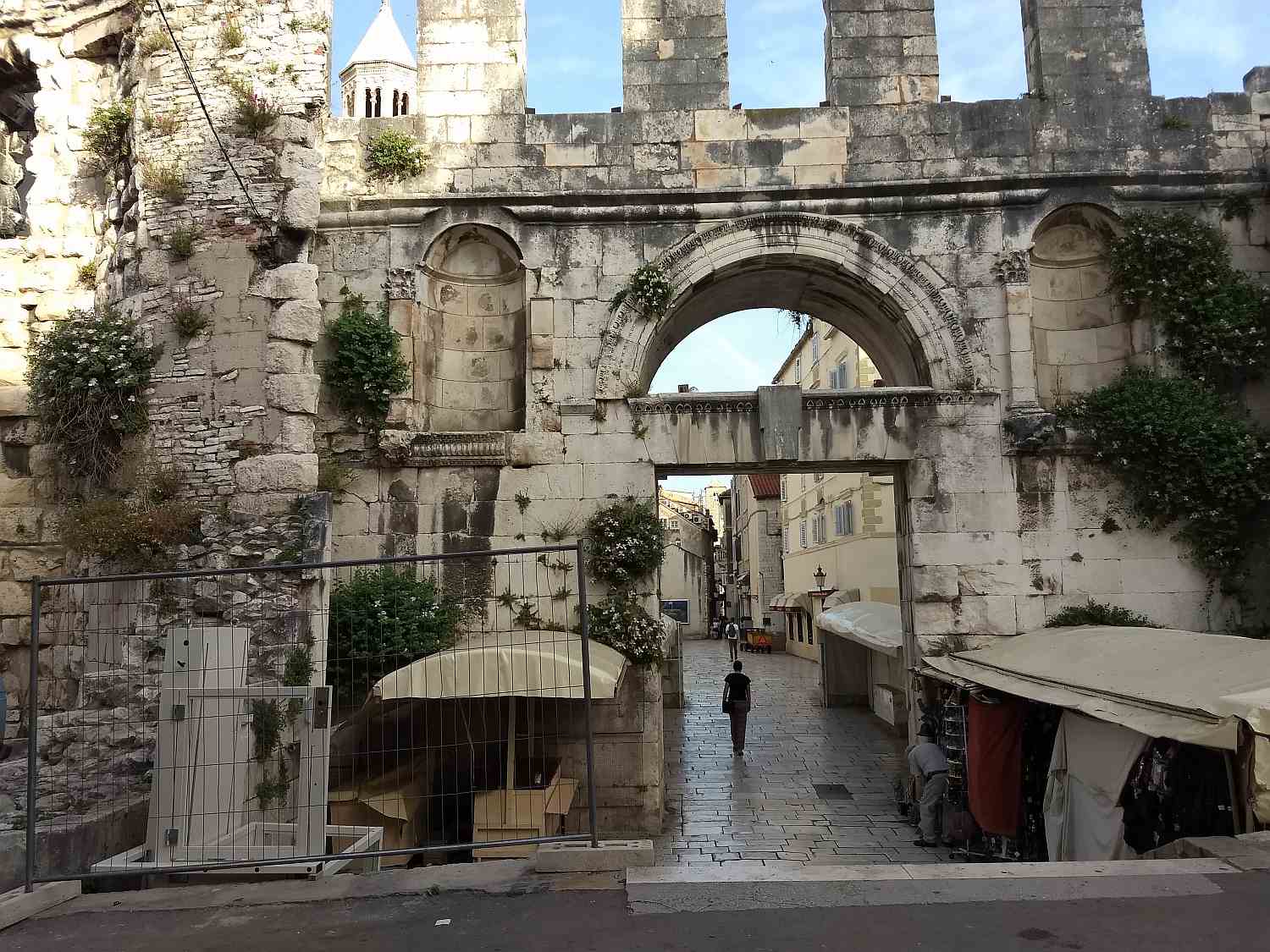
Vjekoslav Aljinović
This is all thanks to the 'Usefall project, UNESCO Site Experience For All', which aims to facilitate the accessibility of Diocletian's Palace and the old city center of Split. The total budget of the project amounts to 1,140,554.88 euro. The City of Split received 270,000 euro in grants for the 'Usefall' project, designed to improve access to frequented locations within Diocletian's Palace. The project should be completed in June this year.
The project covers:
- Lifts in the Center for Culture and Lifelong Learning at Golden Gate, a lift/platform at the eastern entrance to the historic core (at the Silver Gate of Diocletian's Palace), and a platform lift and ramp on the west entrance to the historic core, with two passages from the Republic Square (Prokurative) to adjacent streets
- Creating maps with information on the accessibility of cultural facilities for persons with disabilities
- Organizing workshops for tourist guides, representatives of associations, and cultural institutions to inform them about the maps
- Creating braille models for blind and partially sighted people
You can see the vertical platform lift beside the staircase in front of the Silver Gate at Hrvojeva street below.
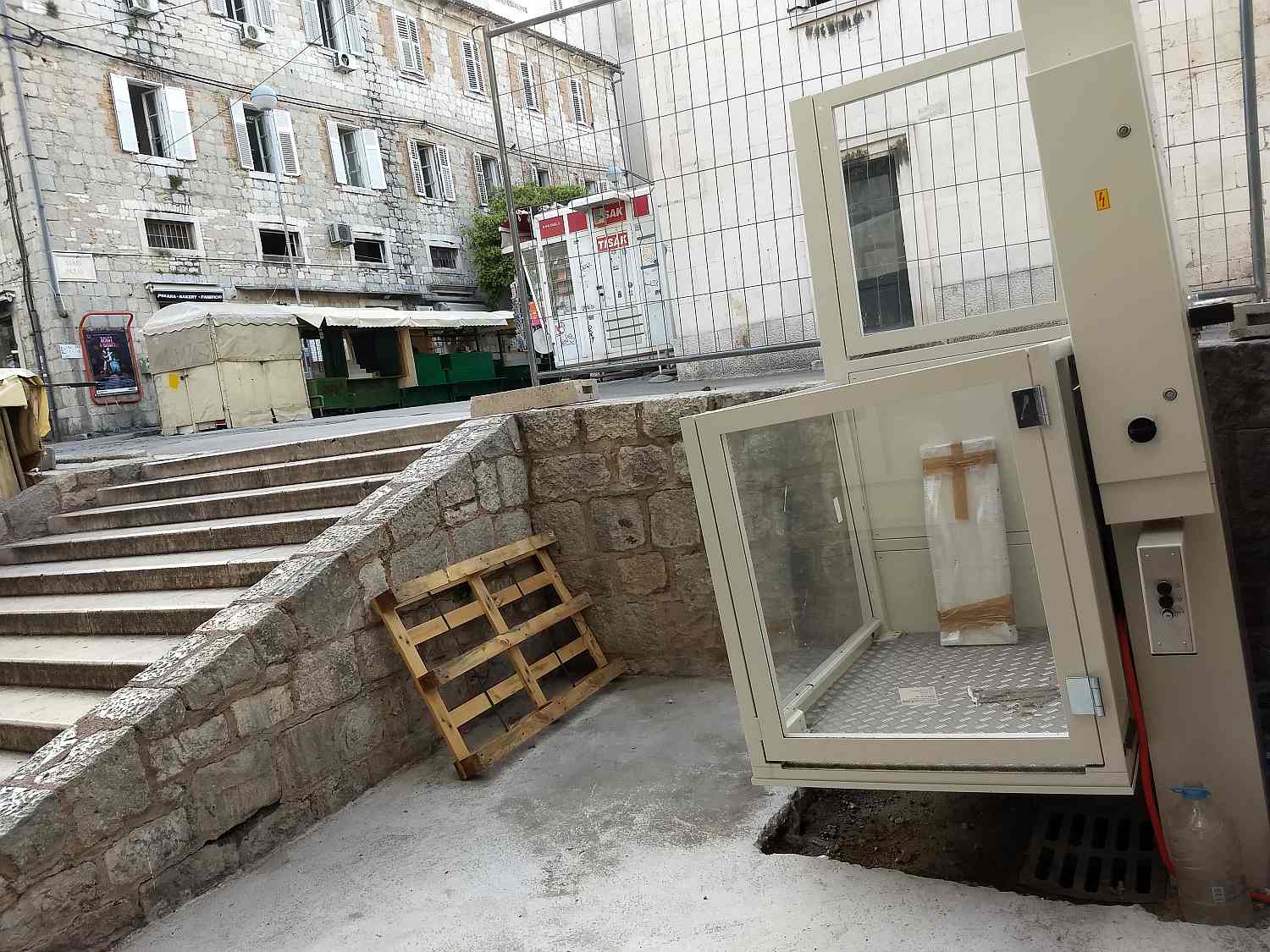
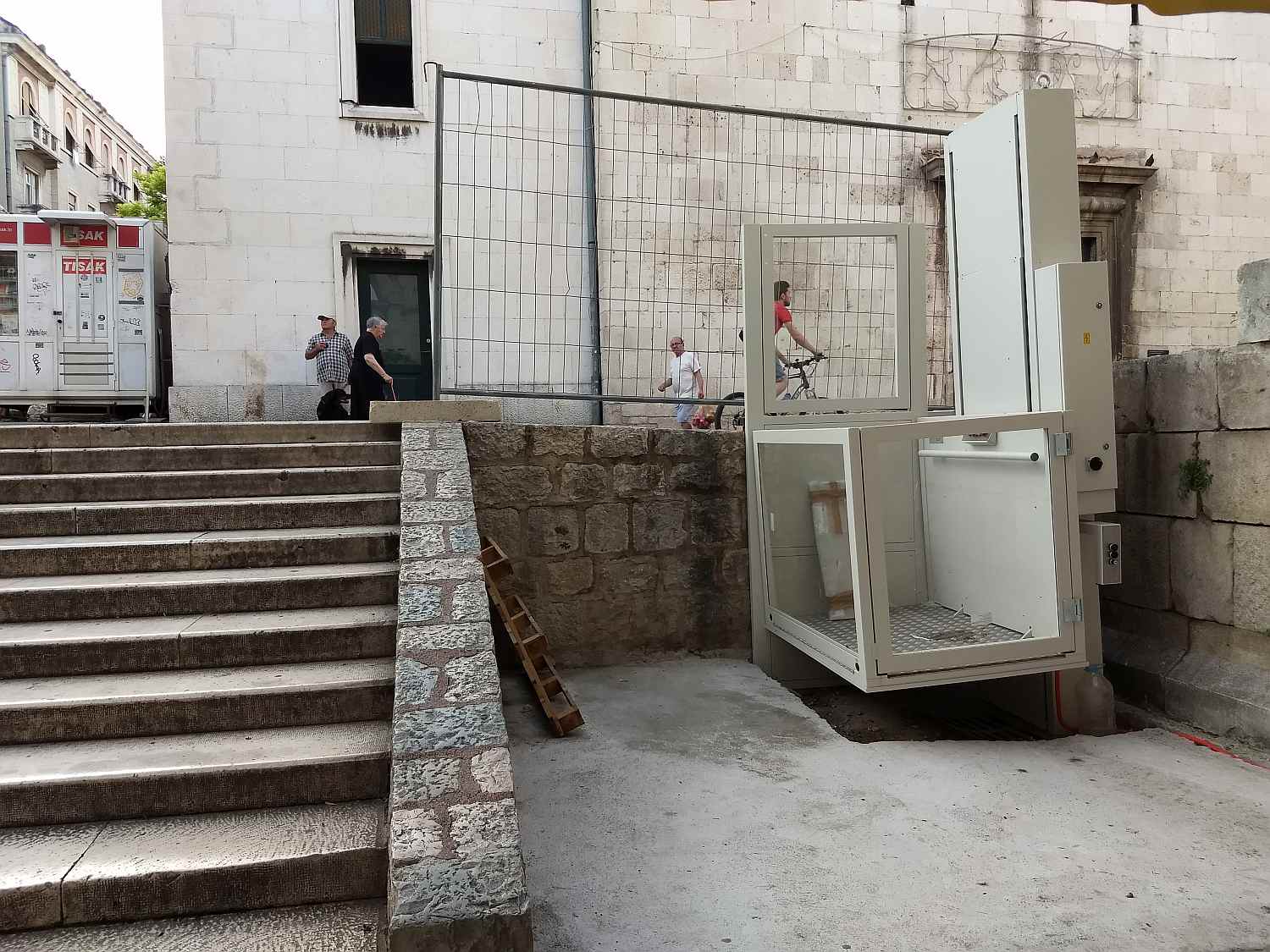
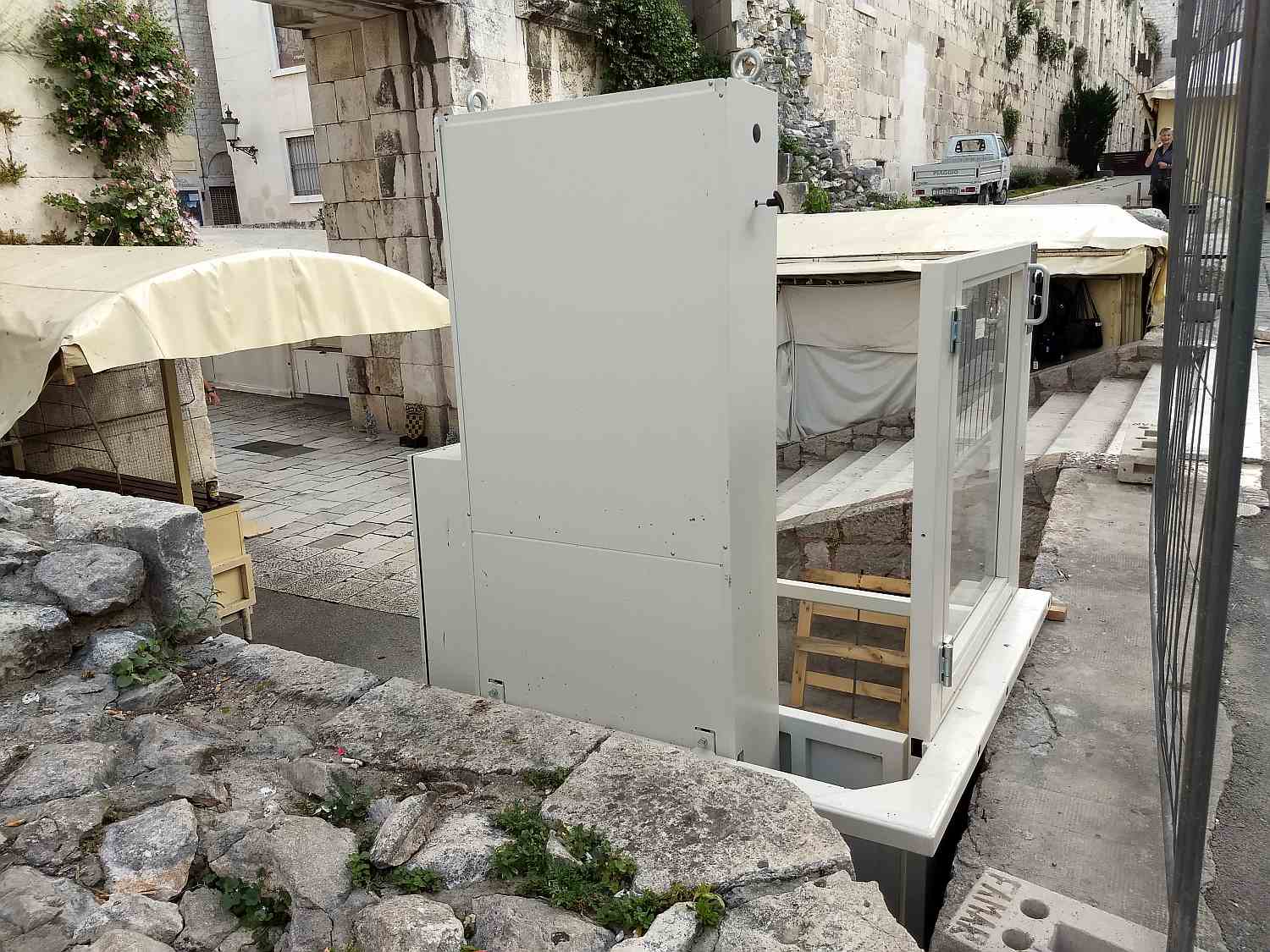
All photos by Vjekoslav Aljinović
For more information about Croatia's accessibility, check out our overview of some city guides, blog impressions, and useful numbers on Total Croatia.
To read more about lifestyle in Croatia, follow TCN’s dedicated page.
VIDEO: Split Metro Officially Begins Operations
June 11, 2019 - The new Split metro officially began operations from Kopilica station to the Split ferry port on Tuesday. While the metro was originally scheduled to depart on its first trip at 10:11 am this morning, it left three minutes late, at 10:14. The trip, however, did only take the take four minutes from Kopilica to the ferry port, as all announcements said previously, reports Dalmatinski portal.
The inaugural ride was hosted by representatives of HŽ Infrastructure and HŽ Passenger Transport together with representatives of the City of Split. The first train ride was attended by Split mayor Andro Krstulović Opara, along with his deputies and many media representatives.
Recall, a ticket for the new metro will be valid for 75 minutes, during which passengers can also travel on the Promet buses. The ticket for the first zone will cost 11 kuna. The metro will drive every 20 minutes and take only four minutes each way.
Recall, Deputy Mayor Neno Vela originally announced the new metro to begin on June 9. This new traffic measure will unload and load tour bus passengers at the new Kopilica station and facilitate travel into the city center. Namely, passengers can travel for 11 kuna via the metro from the Municipal Rail Station in Kopilica to the Split Ferry Port.
The new measure also encourages buses outside of the congested city center to relieve summer traffic. We announced last month that if tour buses did want to load and unload their passengers at the terminals at the Tourist Palace in the city center, they are limited to 15 minutes and will walk out with empty pockets. Namely, the buses who wish to bring their tourists to the Riva will have to pay 800 kuna (400 for unloading passengers, 400 for loading). Until now, they've paid 50 kuna. Kopilica, on the other hand, will boast a parking lot for 48 tour buses, and the daily parking fee for buses will cost 120 kuna (the same parking fee as Dračevac).
"The organization of the Main Railway Station in Kopilica and the introduction of the city metro in the service of public transport is expected to reduce the pressure of vehicles, especially tourist buses at the center of the city. Passengers can get to the center in just four minutes with the new metro and by using a single ticket that is valid for the train and bus, issued by the hour. City trains on the route from Kopilica - Ferry Port and vice versa will travel every 20 minutes,” reads the correspondence sent to the travel agencies, which is signed by Deputy Mayor Nino Vela.
The announcement added that these measures are being introduced so that the “arrival of tourists in the destination is as pleasant as possible, and so that they do not waste time standing in queues, but also to make sure that the local population feels less pressure of tourist flows."
This new traffic measure if just part of it, as one-way traffic will also be introduced at the Split Ferry Port on June 17.
To read more about travel in Croatia, follow TCN’s dedicated page.
Where to Get Your Healthy Food Fix in Split? The 2019 Guide
June 11, 2019 - Living in 2019, it is not hard to notice that people are increasingly more self-aware and conscious about their health. With more information today than ever before, we’re able to find out what food hurts us, what helps us, and the routines we should adopt to prolong our lifespan.
Whether it’s substituting coffee for celery juice in the morning, going gluten-free, or kicking meat for good, this new ’self-care’ trend sweeping across the globe seems to be sticking - that is, especially if you’re looking at the health food boom in Split.
So, where can you exercise your healthier habits in the Dalmatian capital? Here’s our 2019 guide.
Up Cafe: Did you know the Up Cafe was the first vegan and vegetarian food cafe in Split? Less than a 10-minute walk outside of the city center, Up Cafe offers healthy vegetarian and vegan dishes, tofu, seitan and tempeh sandwiches on whole grain, hemp burgers, gluten-free options, cold-pressed and freshly squeezed juices, coffee with soy milk, organic tea, and more. And if you can’t make it there, they also deliver!
Kat's Kitchen: Kat’s is a new gastronomic concept in Croatia. Named after its founder, who has created tasty natural dishes for the family for the last decade, Kat’s focuses on innovative, mostly local, and seasonal ingredients. Their mission is to educate about the importance of eating a balanced diet, and their menu includes things like seasonal salads with peanut and tahini dressing, lunch bowls with coconut curry and rice noodles, protein toast, vegan burgers, raw cakes, and bottled juices made in house.
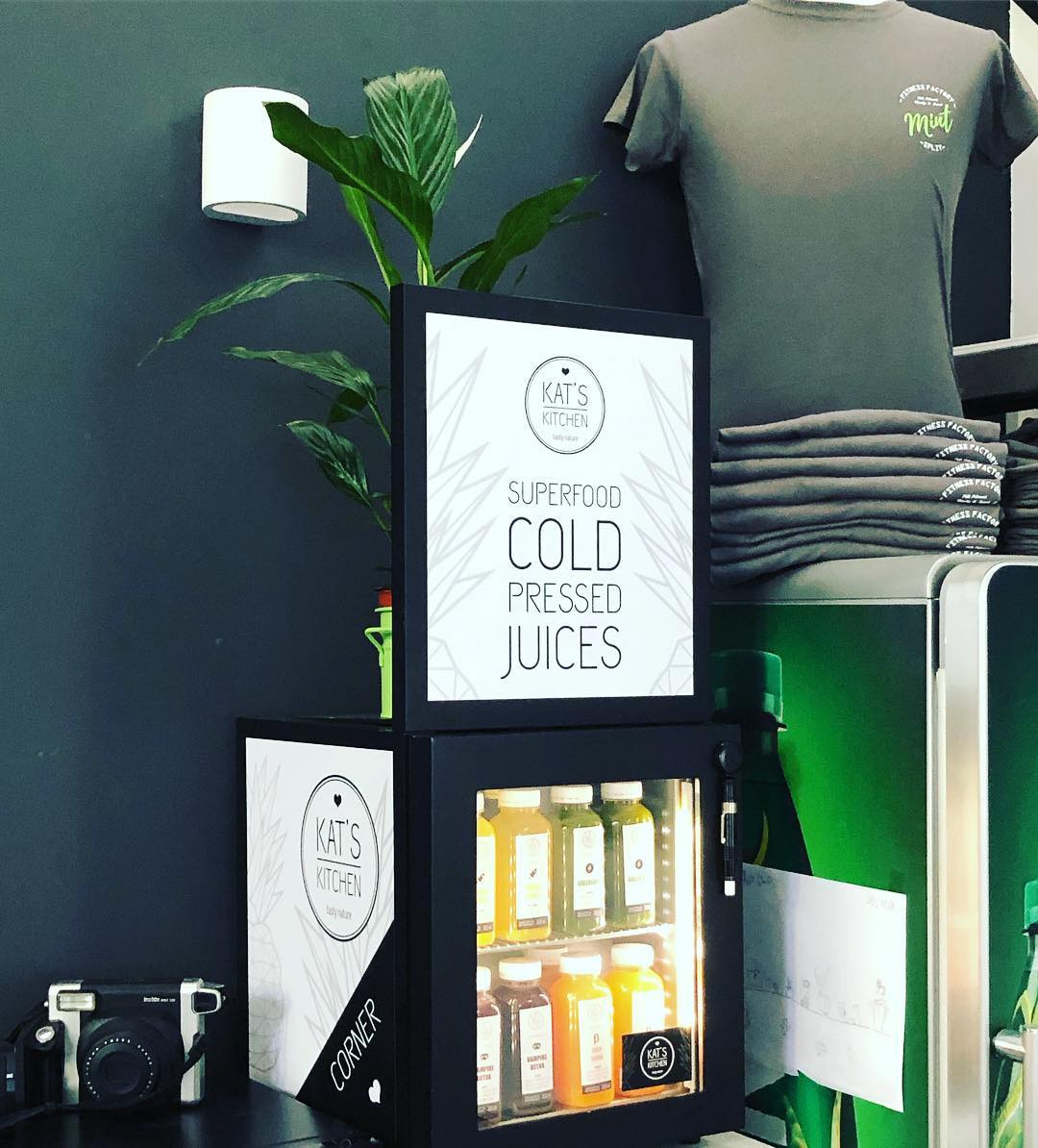
And they also have a Kat's Grab'N'Go in the city center at Morpurgova poljana 1
Superfood Healthy Food Factory: The original Superfood opened in Split 3 back in 2016 and quickly became a hit - and now, with their new location just around the corner from Prokurative, Superfood is making waves again. A ‘healthy food bar’ known for their pizzas made from spelt flour, protein-packed breakfasts, seafood pasta, vegan options, matcha lattes, smoothie bowls, raw cakes, Superfood has it all.
And visit their original location at Ruđera Boškovića 13
Pandora Greenbox: Thanks to the brains behind the established Split restaurant Corto Maltese, there’s a new plant-based restaurant in town - Pandora Greenbox. The menu features items like vegetarian beetroot risotto, eggplant parmesan, the ‘Kate Moss’ detox energizing juice, and a very impressive looking vegan burger. But that’s just part of it - the decor is a reason to visit, too.
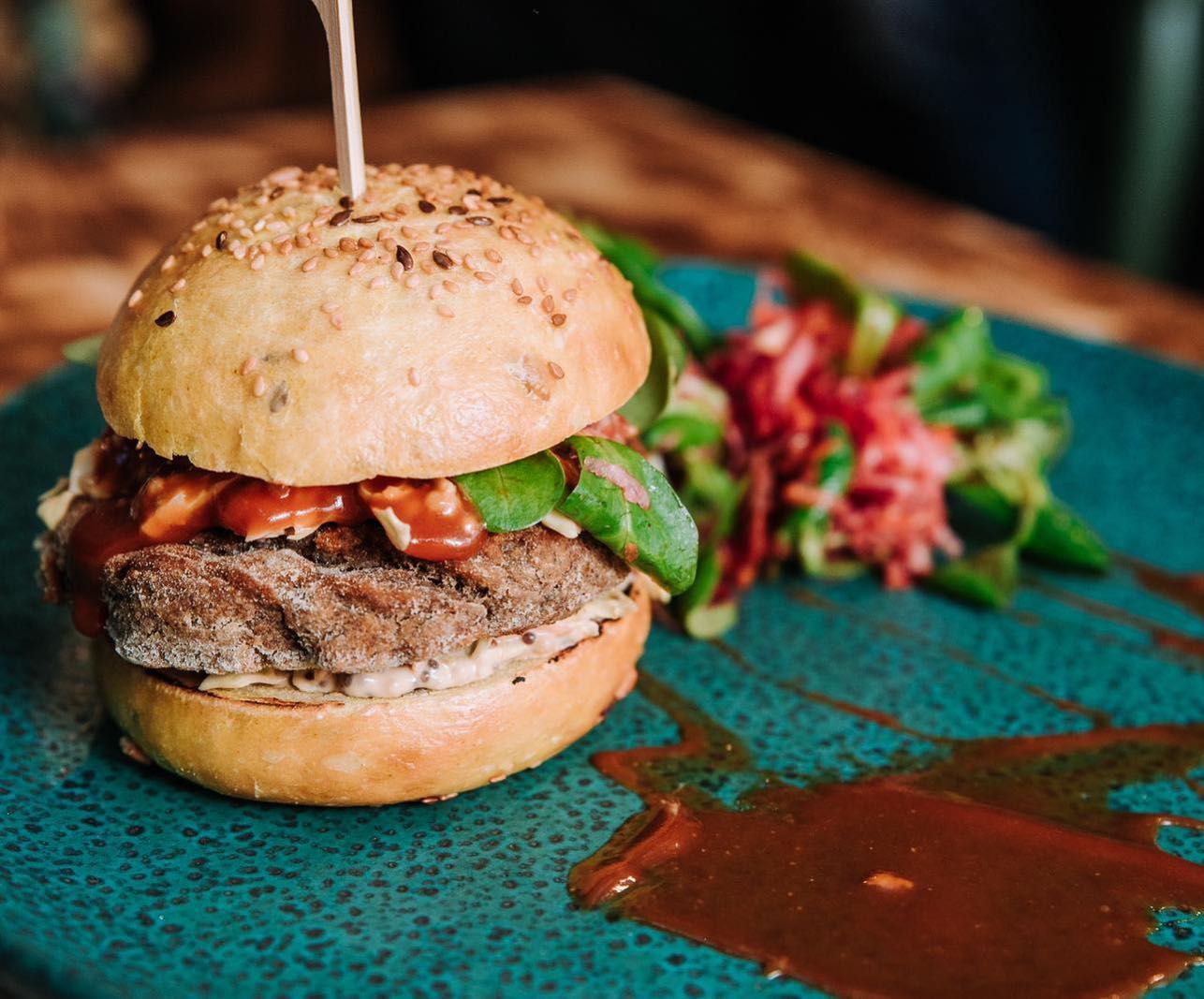
Marta’s Veggie Fusion: Marta’s serves up ‘feel-good, hearty vegan and vegetarian street food' in a small family-owned location around the corner from Peristyle. Here, you can find a vegan black bean burger, hummus and tofu sandwich on homemade focaccia bread, veggie burritos, tofu wok dishes, raw cakes, and a selection of juices and smoothies.
Step by Step: Step by Step is a health food bar and restaurant that boasts a range of gluten-free options for guests, like chia pizza, spaghetti primavera or crepes. Guests can also make their own salads, juices and smoothies and enjoy a variety of options for breakfast, like egg dishes and açai bowls.
Health In: Another new restaurant to the scene is Health In. Located outside of the city center near Firule, the owners have said it is a place where “Lovers of meat and fish, vegetarians, vegans, but also those who like to avoid gluten can find their favorite meals in one place,” and we can see why. From wok dishes to gluten-free pasta, protein-packed meals called the ‘Hulk’, açai bowls, colorful sweet potato salads, and banana pancakes, how could you go wrong?
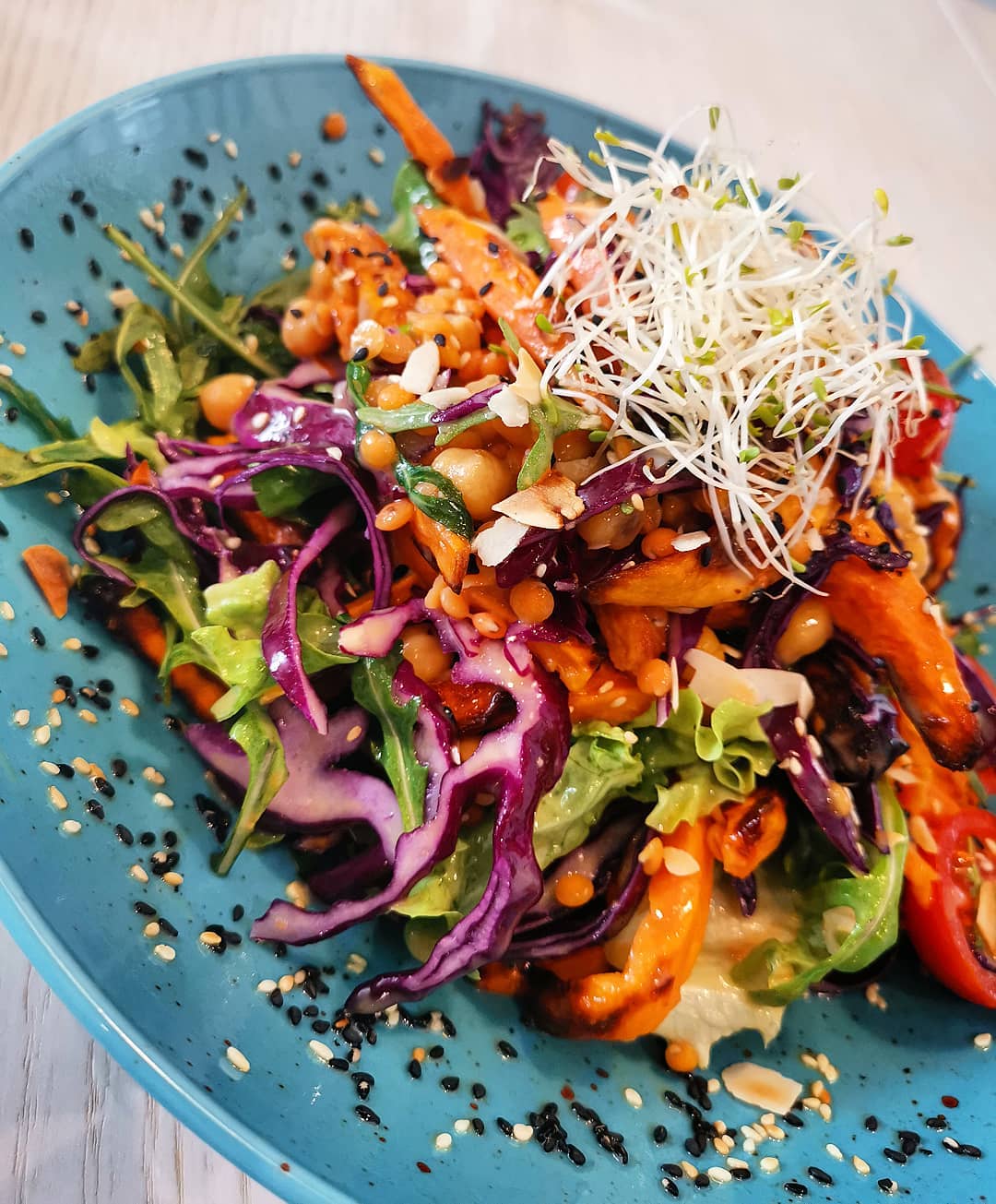
Roots Coffee and Cuisine: Just steps outside the city center you’ll find Roots. From tuna burgers to spicy curries, spelt flour pancakes, vegan sarma, bulgur dishes with lentil salsa, brussel sprouts and chicken (or tofu), or falafel bowls, Roots is the perfect balance for vegans, vegetarians, and those who eat it all.
Other options: Of course, there are plenty of other places in Split where you can satisfy your health fix. Popular pizza place Velo Misto, for example, offers gluten-free pizza and pasta, as does Krustić bakery across from Corto Maltese. Toto’s, one of Split’s beloved burger joints, offers gluten-free buns and a variety of raw cakes and healthier options, too. And let’s not forget that Split is a haven of health food stores - Bio&Bio, Bio Planet, and Refužo are just part of them!
To read more about lifestyle in Croatia, follow TCN's dedicated page.
1,000 Participants, 5 Days: 15th European Veteran Rugby Festival in Split
Slobodna Dalmacija reports on June 11, 2019, that the 15th European Veteran Rugby Festival begins in Split this Thursday, June 13 and ends on Monday, June 17. Just less than 1000 participants will spend five days in Split and Dalmatia under the slogan "fun, friendship, brotherhood and family!"
The established Split Rugby Club ‘Nada’, with its many outstanding sports traditions, celebrates two important anniversaries in 2019 - 60 years since the club was founded and 45 years of the ‘Ragbi '59’ Veterans' Club. Thus, their colleagues from 17 European countries and teams from Argentina and New Zealand will help them mark these significant anniversaries.
The Split rugby players, along with the support of the City of Split, the Croatian Rugby Federation, the Split Association of Sport, TZ Split and TZ Split-Dalmatia County, will ensure all of their guests feel comfortable and that their stay in Split will be one for the memory books, once again promoting Split and Dalmatia as a significant sports and tourist destination with an exceptionally vibrant cultural and historical heritage and a renowned and respected gastronomic offer
For these reasons, the event is conceived in the form of a festival where, alongside the sport, guests have the opportunity to get acquainted with the customs and traditions of the host. The sports part of the event will be held throughout the day on Friday, June 14 and Sunday, June 16 at the Nada Rugby Club and the HNK Hajduk Split auxiliary fields.
The festivals were usually held every two years until 2012, and from 2013, they’ve been held every year. The European Golden Oldies Rugby Festival (EGOR) is intended for veteran rugby players over 35 years of age. At the Split festival, as well as all the previous editions, there will be a significant number of players over the age of 70.
The festival's spirit is best shown by the fact that there are no medals awarded by placement and team results, but the awards are shared by teams that best reflect the spirit of veteran rugby, the oldest players, the toughest teams and players, the most beautiful moves and actions (teams and individuals) and the best fair-play.
The event aims to promote the sport as one for all ages and educates about the different countries, nations, cultures, customs, and traditions of host cities. The tradition of the Golden Oldies festival dates back to 1979 when the world's first festival was held in Auckland. The first European festival was held in Hertogenbosch in the Netherlands in 1992. To date, there have been a total of 14.
The reputation of the Split rugby in the European Rugby Union is best explained by the fact that Nada and the City of Split are the only that has had the opportunity to organize this event twice in the 37 years of the EGOR Festival. Recall, Split held their first EGOR Festival in 2002.
To read more about lifestyle in Croatia, follow TCN’s dedicated page.
Small Protest Against Mandatory Vaccination Held in Split
ZAGREB, June 9, 2019 - A peaceful anti-vaccination protest was held in Split to mark International Vaccine Injury Awareness Day, with protesters saying that the procedure should not be mandatory but based on informed consent.
The protest was organised by the Croatian Association of Parents and Activists (HURA), and a special guest at the event was Andrew Wakefield, a controversial British doctor who has lost his medical licence and who opposes vaccination, claiming it causes autism.
Speakers at the protest stood up for Wakefield, claiming that he was exposed to a media lynching campaign.
The protesters wore T-shirts and carried banners with messages warning about the consequences of vaccination such as "Report side effects", "Mom and dad decide", "Stop the import of unsuitable vaccines", "These are our children", and "Leukaemia means death".
HURA president Alma Demirović said that vaccination is mandatory in Croatia, which violates some of the fundamental human rights, notably "to right to obtain full information on vaccination." Vacines cannot be mandatory and noncompliance cannot be punished with discrimination, fines and other types of human rights violation, said Demirović.
She stressed that HURA was not advocating an end to get vaccinations but rather that it be done on the basis of a recommendation.
Wakefield said that Croatian citizens had to have control over their and their children's bodies and that they should demand full informed consent with regard to vaccination.
Another speaker at the protest, doctor Lidija Gajski said Wakefield had been exposed to a media lynching campaign.
"The medical community is calling for the boycott of today's protest. Science journalists have stood up against it. Andrew Wakefield's visit was announced by almost all media outlets," said Gajski, describing media reports as a lynching campaign aimed at distorting the truth.
The anti-vaccination gathering in Split was also attended by member of parliament Ivan Pernar, who recently left his Živi Zid party, and who told reporters that he came to support parents in their right to choose whether or not to have their children vaccinated.
"Vaccination should be voluntary and it will be voluntary when the parliamentary majority is made up of politicians who advocate voluntary vaccination," Pernar said, calling on voters to support such politicians.
The Croatian Medical Chamber, the Croatian Medical Association and members of the Croatian Journalists Association who are science journalists recently expressed concern about Wakefield's visit to Split, noting that vaccination was one of the most important medical achievements of modern times and one of the safest medical interventions.
More news about the issue can be found in the Lifestyle section.
UPDATE: New One-Way Traffic Regulation at Split Ferry Port to Begin June 17
By looking at the ongoing construction at the Split ferry port, it is clear to see why the new traffic regulation through this part of the city has been delayed.
Namely, the planned start of one-way traffic through Zvonimirova Street, the City Port, and Bačvice will not start next Monday, June 10th, but a week after, on the night of June 17th to June 18th, reports Slobodna Dalmacija on June 8, 2019.
The culprit is the bad weather in May, causing the postponement of the construction work that was supposed to be completed by the end of last month.
The biggest effort is to redefine the roundabouts in the port at the large bus stop, where two articulated Promet buses could stop at the same time. And since it's pretty clear by the looks of it today that the works cannot be completed by Monday, June 10, when the start of the new traffic regulation was planned, they decided to wait for the completion of the school year, but to complete the works before the Corpus Christi holiday. “Croatian roads" are responsible for this part of the work.
Taking into account the dynamics of the work carried out, the current state of the traffic load, the date of the end of the school year, and given the change of public transport lines,the forthcoming state holidays of Corpus Christi, Anti-Fascist Struggle Day and the Statehood Day, at the agreement of the City of Split, the “Port Authority" and “Croatian Roads", it was concluded that the most convenient day to introduce the new traffic regulation is June 17th, said Tamara Pajić, spokeswoman for Croatian Roads.
The Port Authority has made a minor reorganization in its area, and on the access roads, Zagrebačka Street and at the crossing of the Domovinskog rata and Vukovarska Street, the City of Split has improved signaling so that those going to the port have a clear direction.
You can see how the new one-way traffic regulation will look here.
Deputy mayor Nino Vela has repeatedly stressed that turning traffic one-way is a "recipe" that is challenged in a large number of European cities, and the new traffic solution strengthens the bus lines and metro being put into function as part of public transport.
“By reorganizing the bus lines, three times as many passengers will be able to come to the harbor with the bus, so instead of the current 15,000, 45,000 passengers will be transported, which strengthens public transport while reducing the need for passenger cars in the harbor,” Vela said.
To further establish better traffic flow in the city center, the City announced that the metro would begin driving on Tuesday, June 11, at 10 am. The new metro will depart every 20 minutes from the main Railway Station in Kopilica to the port and back. The City of Split has said that works are ongoing on this part of the project and guarantees everything will be ready by Tuesday when the first metro departs for the port.
The train journey will last four minutes, and a single travel ticket for the city metro and city bus will be introduced at a price of 11 kn, which can be used by the passenger within one hour on the Kopilica-Ferry Port route and vice versa, and in all "Promet" buses in the first zone.
To read more about lifestyle in Croatia, follow TCN’s dedicated page.
It's Official: First Split City Metro Trip Departs at 10:11 am On Tuesday!
From Tuesday, June 11, the new city metro, connecting the Split ferry port and Kopilica, will begin operations. The first metro trip will depart at 10:11 am, reports Dalmatinski Portal on June 7, 2019.
From Saturday morning, Hercegovačka street is open for traffic. The asphalting is completed, horizontal signaling is up, and before dawn, the first cars were able to pass through this roadway where the works have been ongoing for quite a while.
During the works on Hercegovačka street, a gas pipeline was installed, the storm drainage was adjusted, they renovated the installation channels and pavement, the sidewalk from the south side of the road was reconstructed, and a new sidewalk was built on the north side.
Recall, Deputy Mayor Neno Vela originally announced the new metro to begin on June 9. This new traffic measure will unload and load tour bus passengers at the new Kopilica station and facilitate travel into the city center. Namely, passengers can travel for 11 kuna via public city transport (the metro) from the Municipal Rail Station in Kopilica to the Split Ferry Port.
The new measure also encourages buses outside of the congested city center to relieve summer traffic. We announced last month that if tour buses did want to load and unload their passengers at the terminals at the Tourist Palace in the city center, they are limited to 15 minutes and will walk out with empty pockets. Namely, the buses who wish to bring their tourists to the Riva will have to pay 800 kuna (400 for unloading passengers, 400 for loading). Until now, they've paid 50 kuna. Kopilica, on the other hand, will boast a parking lot for 48 tour buses, and the daily parking fee for buses will cost 120 kuna (the same parking fee as Dračevac).
"The organization of the Main Railway Station in Kopilica and the introduction of the city metro in the service of public transport is expected to reduce the pressure of vehicles, especially tourist buses at the center of the city. Passengers can get to the center in just four minutes with the new metro and by using a single ticket that is valid for the train and bus, issued by the hour. City trains on the route from Kopilica - Ferry Port and vice versa will travel every 20 minutes,” reads the correspondence sent to the travel agencies, which is signed by Deputy Mayor Nino Vela.
The announcement added that these measures are being introduced so that the “arrival of tourists in the destination is as pleasant as possible, and so that they do not waste time standing in queues, but also to make sure that the local population feels less pressure of tourist flows."
This new traffic measure if just part of it, as one-way traffic will also be introduced at the Split Ferry Port.
To read more about travel in Croatia, follow TCN’s dedicated page.
Property of the Week: 3 Bed Apartment Now a Hostel in Split
June 7, 2019 - With tourism booming in Split, a rare chance to buy a functioning hostel in Split in the latest Trgostan property of the week.
It is about 15 years since the first hostel opened in Split. Since then, tourism has boomed, and more and more backpackers are visiting the Dalmatian capital and looking for an affordable bed for their stay. The season is also getting longer and the hostel business is booming. Here is your chance to become a hostel owner in this week's Trgostan property of the week, a 3-bedroom apartment in Split currently functioning as a hostel.
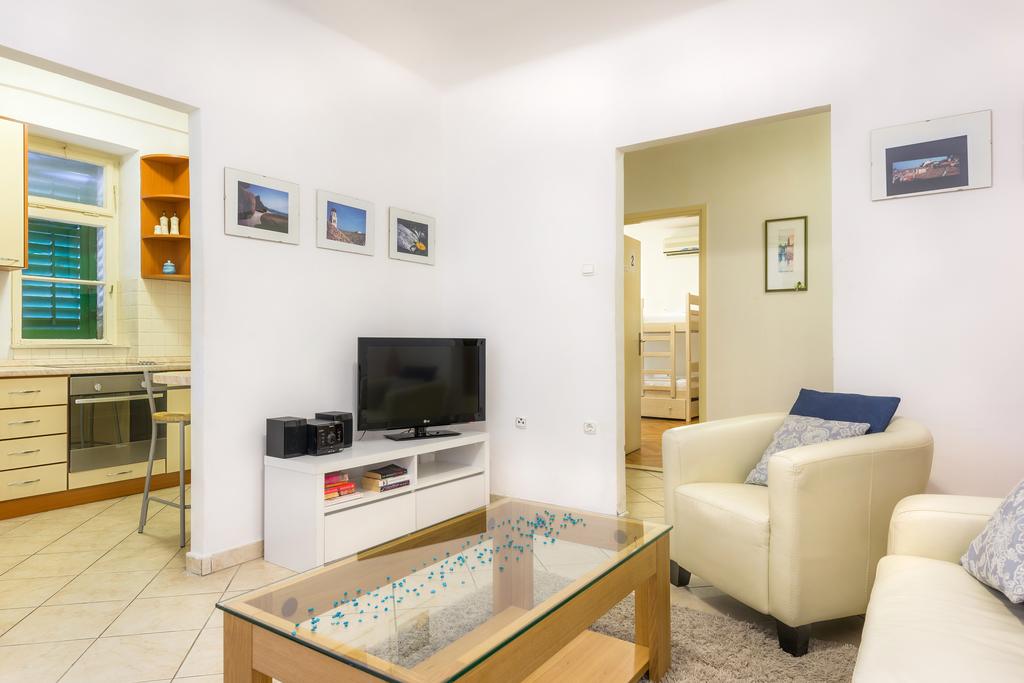
In the words of Trgostan:
A three bedroom apartment of 85 sqm, located few steps under the ground level, in an old villa in Split center (Manus area), consisted of three bedrooms, open plan kitchen with dining and living area, two bathrooms and loggia/storage, fully furnished and equipped, in function as a hostel.
Price 189,000 euro. For more information, and to book a viewing, check out the original listing.
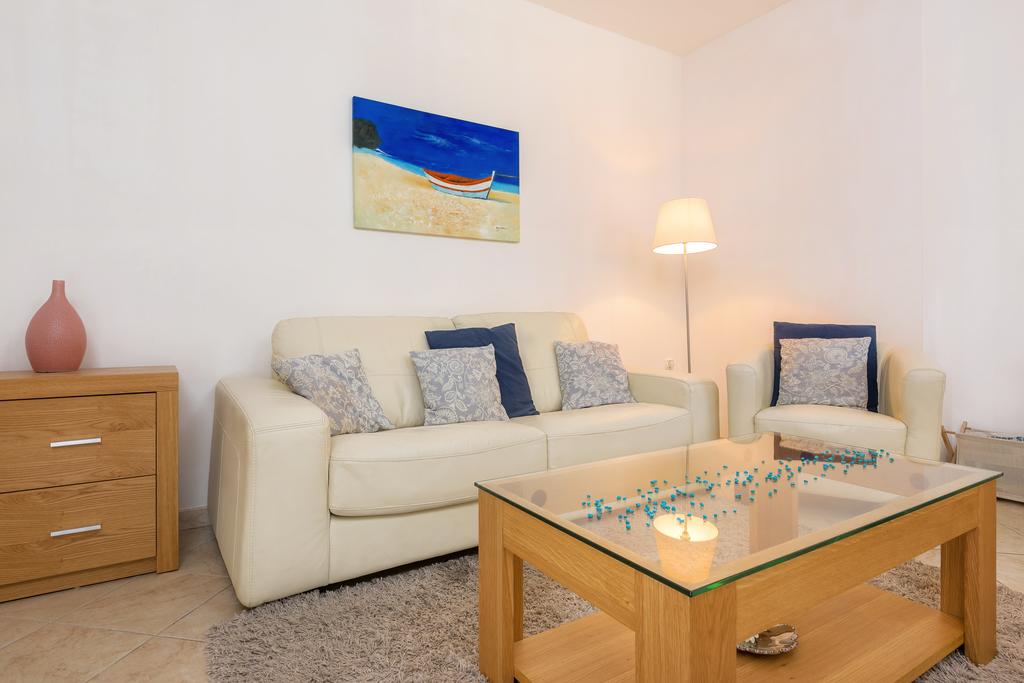
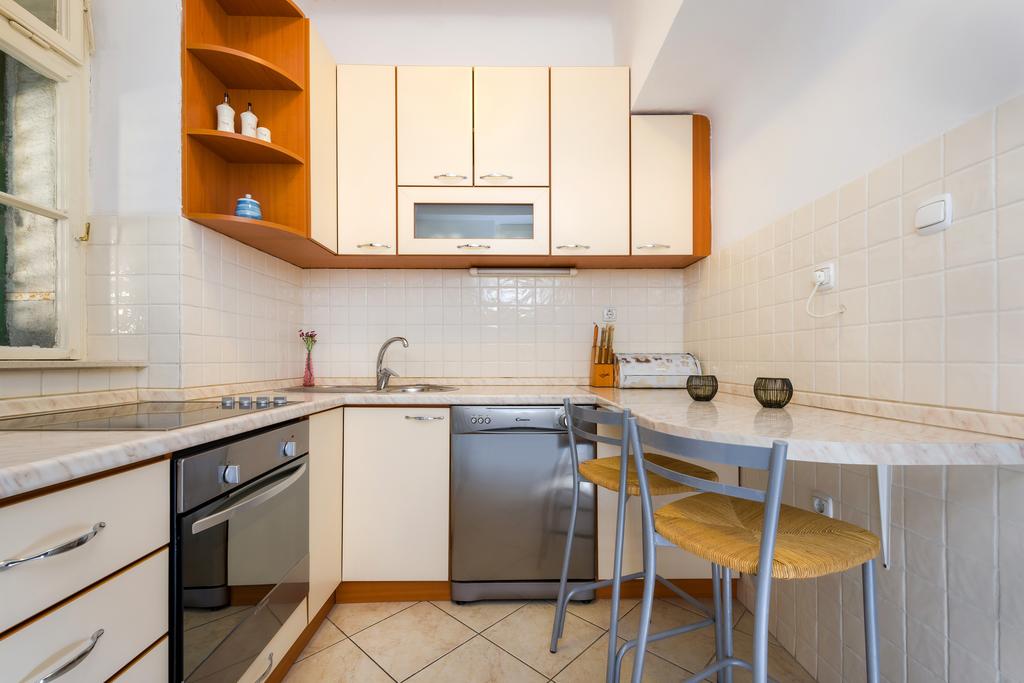
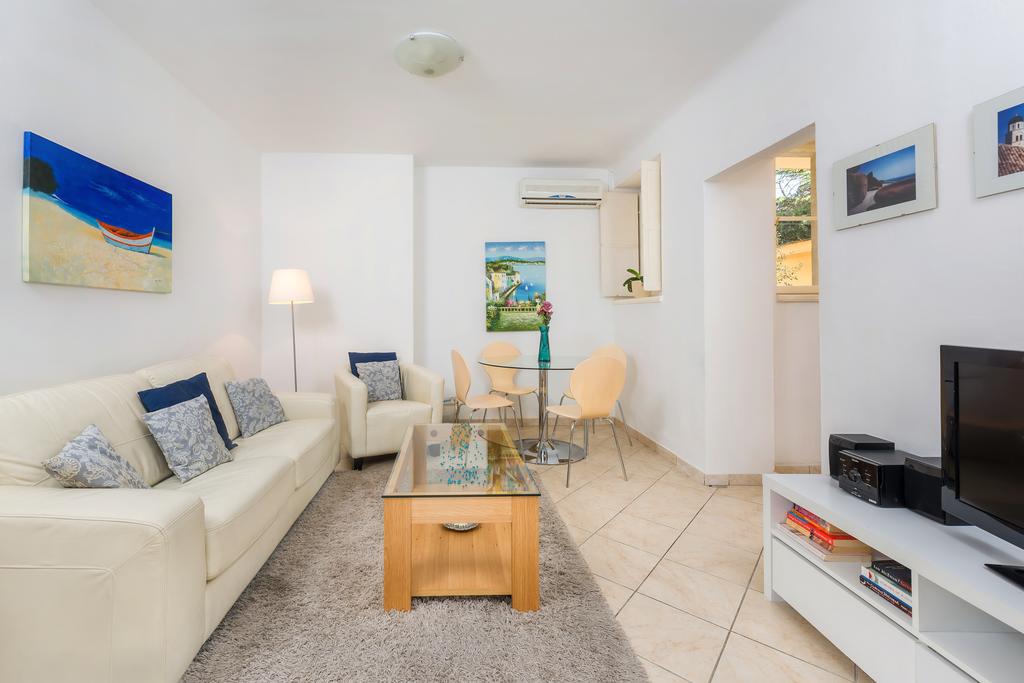
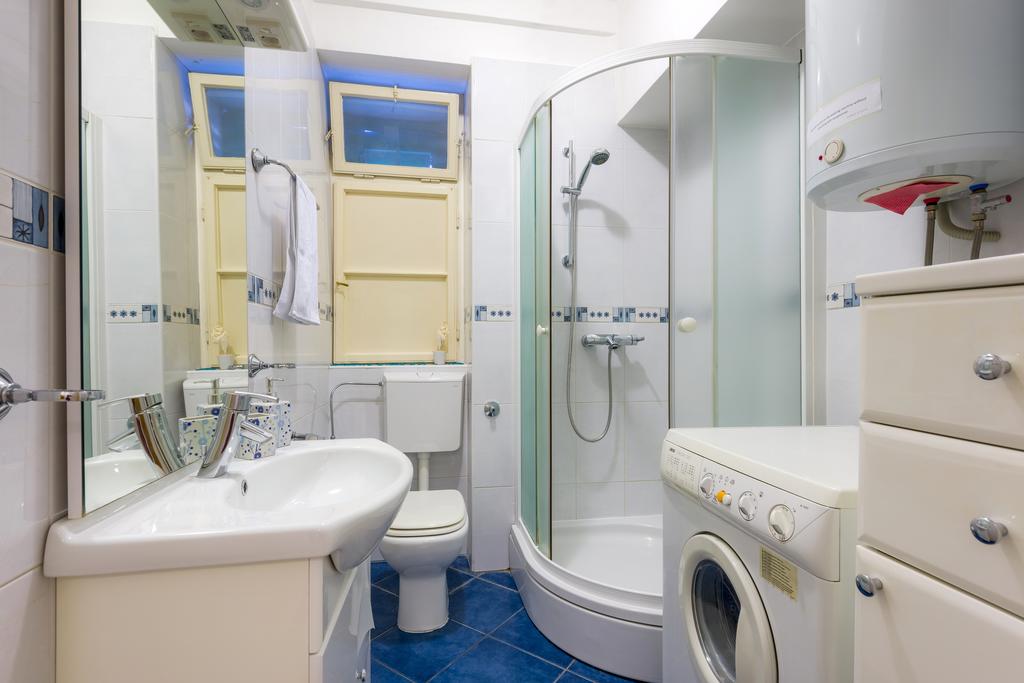
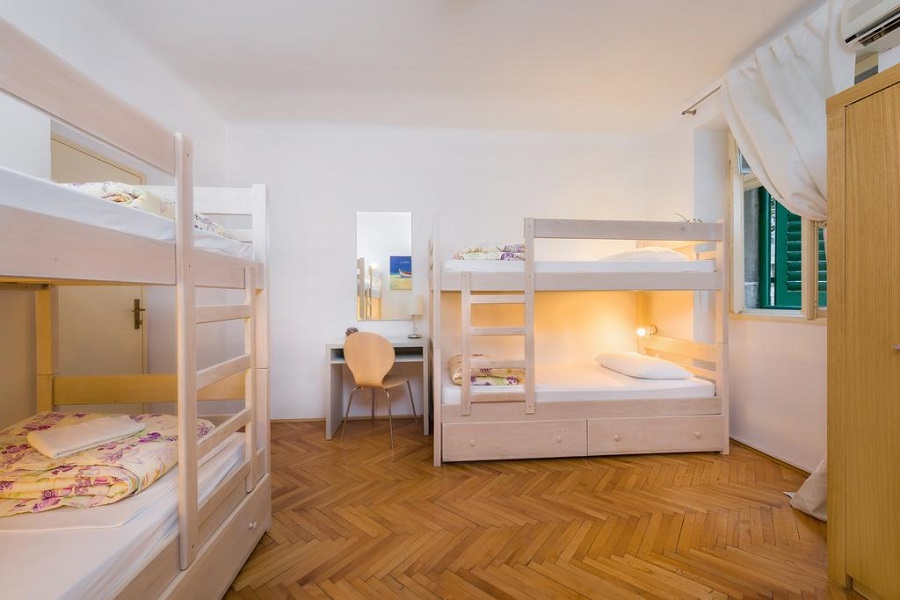
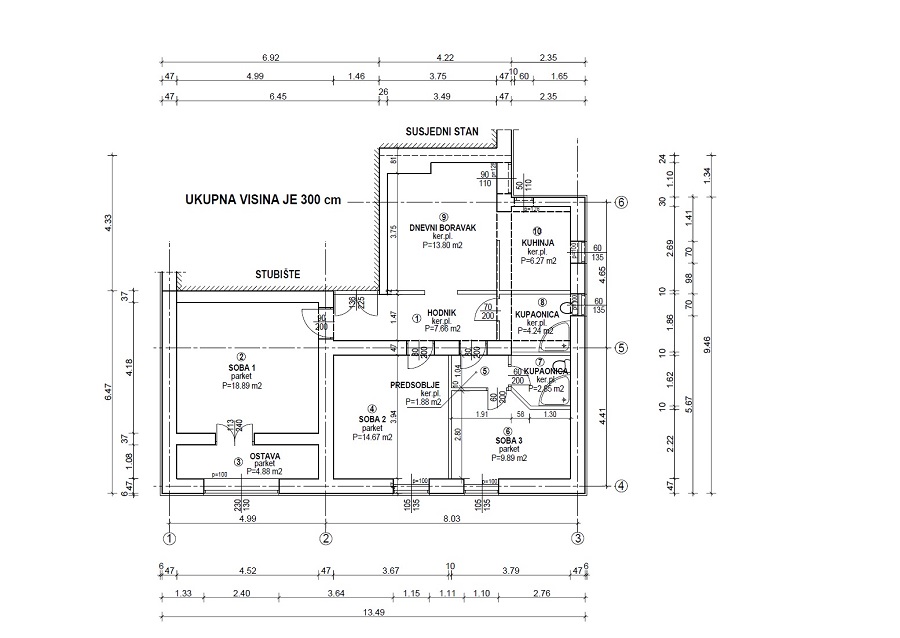
Split to Host Organization of World Heritage Cities Conference Next Year
Split will host the Regional Conference of the Organization of World Heritage Cities of Central and Eastern Europe in October next year, announced the City of Split on June 6, 2019. Split was chosen as the host at the 15th World Congress of OWHC held in Krakow, where Split mayor Andro Krstulović Opara attended to accept the candidacy.
The City of Split renewed its membership in this organization in 2018 at the initiative of Mayor Krstulović Opara, since the previously active membership, which began in 1993, was interrupted in 2007.
The inevitable issues of this year's world congress include tourism of cities of world heritage and the need to harmonize national legislation with the UNESCO and OWHC guidelines in order to unify the needs of the local population as well as the relations of the population with the business world and investors.
Mayor Andro Krstulović Opara pointed to the importance of strengthening cities in Europe by achieving autonomous decision-making and lowering authority from the state and the European Commission to cities, as an increasing number of Europeans live in cities.
“Particularly sensitive are the cities of cultural heritage that play a special role in this phenomenon of immigration and mobility of the population,” said Krstulović Opara.
As common problems of world heritage cities, the issues that the ancient city centers face regarding the mass of apartments rented through Airbnb and other platforms were highlighted. Difficulties also arise in traffic or inadequate infrastructure that cannot withstand increased numbers.
Split will host the most important historical cities of Central and Eastern Europe as part of the 40th anniversary of the inclusion of Diocletian's Palace and the old city center on UNESCO's World Heritage List. This and related topics will be proposed by the Split presidency to the Conference.
To read more about lifestyle in Croatia, follow TCN’s dedicated page.


